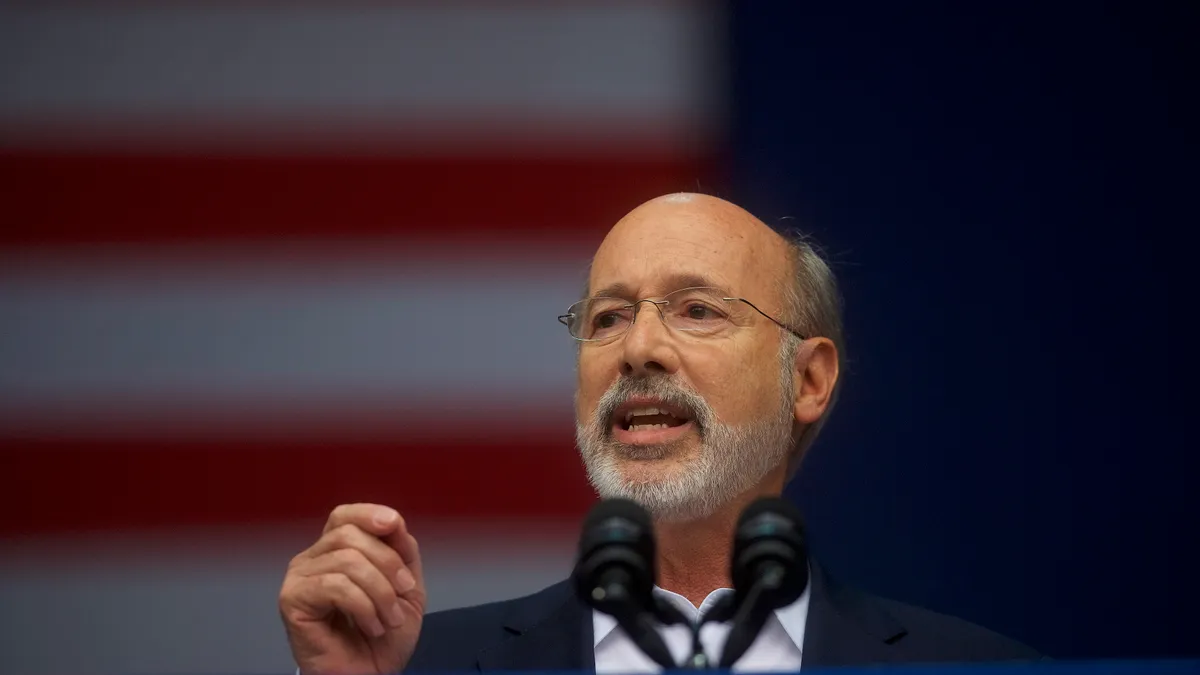Dive Brief:
- Pennsylvania Gov. Tom Wolf, a Democrat, is proposing a legislative package designed to curb sexual violence at the state's colleges.
- The plan consists of four bills. One would require all institutions, public and private, to enact policies outlining what acts are considered consensual and how to obtain consent, which is commonly referred to as a "yes means yes" law. Another would direct schools to provide sexual assault survivors with certain accommodations or protective measures if students requested them.
- The other two bills would mandate sexual violence awareness instruction at middle and high schools and create a task force to study sexual misconduct, domestic violence and dating violence at colleges and in grades 6 through 12.
Dive Insight:
Wolf's legislative proposal builds on sexual violence bills he spearheaded and signed in 2019. One requires colleges to offer an anonymous, online option for flagging sexual assaults, and an amnesty law shields students from being punished for drug, alcohol and other offenses if they report sexual offenses.
"We have made a lot of progress in combatting sexual violence and harassment in schools, but we need to do more to ensure all of our students are safe," Wolf said in a statement.
The centerpiece of his new package, the "yes means yes" legislation, echoes laws passed in California, Connecticut, Illinois, Minnesota and New York.
As a part of Pennsylvania's version, colleges would also need to develop agreements with local rape crisis centers and domestic violence programs, as well as establish sexual violence awareness programs.
California and New York were the earliest adopters of the "yes means yes" laws, in 2014 and 2015, respectively. Hundreds of institutions have also since adopted affirmative consent policies.
Students may not entirely grasp the concept, however. One body of research indicates that they gauge consent through various cues, some nonverbal, that do not match the stricter definition of affirmative consent.
And in 2016, the American Law Institute declined to amend its Model Penal Code to include an affirmative consent standard. The code guides state legislatures when standardizing their penal codes, and such a change would have likely affected laws nationwide.
The landscape on campus sexual assault is still shifting. Former Education Secretary Betsy DeVos issued a regulation that took effect last year dictating how colleges must investigate and potentially punish sex crimes. Activists for sexual assault survivors railed against the rule, saying it diminished institutions' responsibility to address sexual violence.
The Biden administration is forming a replacement for that rule. A draft version is expected to be released in May of 2022.













